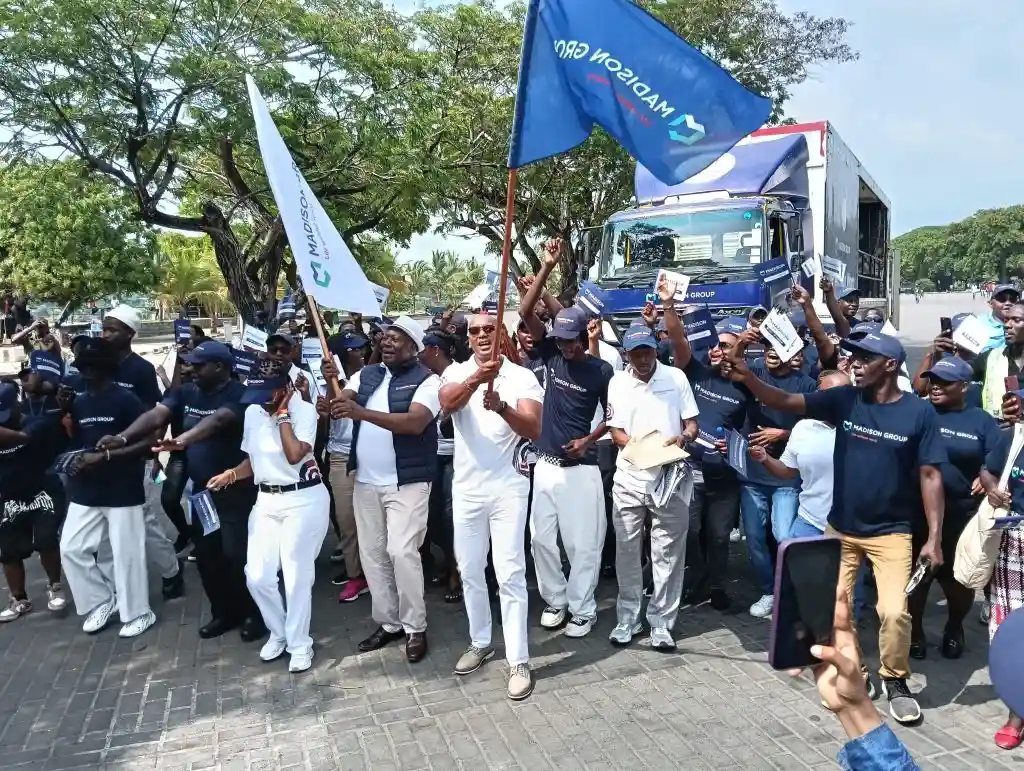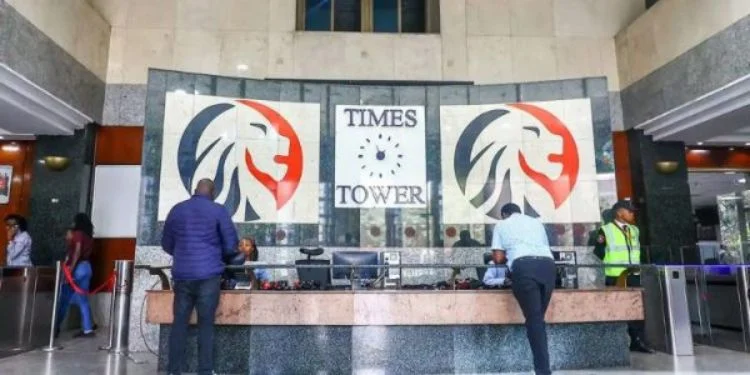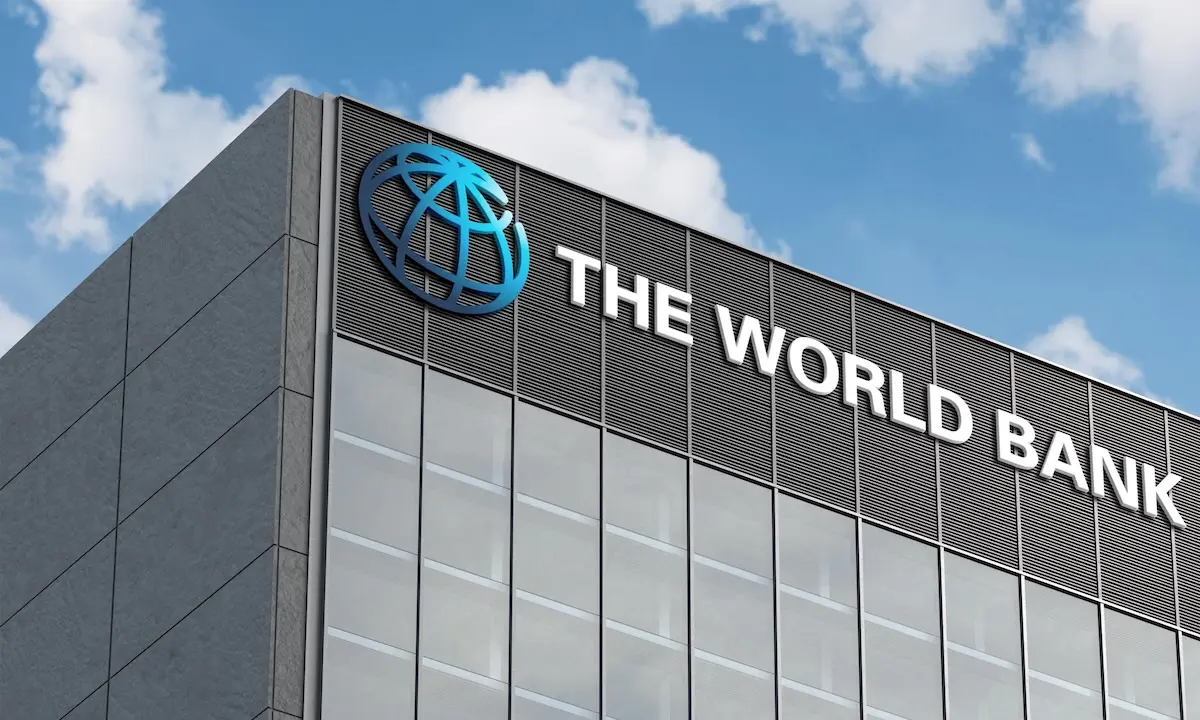Madison Life Assurance Limited has launched an aggressive campaign to revolutionize insurance accessibility in Kenya by specifically targeting the informal sector, a vast and largely untapped market segment that company executives believe holds the key to dramatically boosting the insurance industry’s contribution to the national economy. The initiative comes at a time when Kenya’s insurance penetration remains stubbornly low despite the sector’s potential to provide financial security to millions of households.
Kenya’s insurance spread currently stands at a mere 2.3 percent of GDP, a figure that Madison Life Managing Director Githua Ngaruiya describes as far below the country’s potential and significantly lower than what is observed in more developed insurance markets globally. This low penetration rate indicates that the vast majority of Kenyans remain outside the formal insurance system, leaving them vulnerable to financial shocks from health emergencies, accidents, deaths, and property losses that could be mitigated through appropriate insurance coverage.
Build the future you deserve. Get started with our top-tier Online courses: ACCA, HESI A2, ATI TEAS 7, HESI EXIT, NCLEX-RN, NCLEX-PN, and Financial Literacy. Let Serrari Ed guide your path to success. Enroll today.
Speaking in Mombasa during the launch of a comprehensive nationwide advocacy campaign, Mr. Ngaruiya underscored the critical importance of cultivating a strong savings culture, particularly among residents in the coastal region who have historically shown lower rates of insurance uptake compared to their counterparts in Central Kenya and Nairobi.
The Savings Imperative: Building Financial Resilience
“Saving remains a crucial safeguard against future risks. A small saving goes a long way,” Mr. Ngaruiya stated, articulating a philosophy that positions insurance not merely as a risk management tool but as a fundamental component of household financial planning and wealth accumulation. His remarks highlight how insurance, when properly structured, serves the dual function of providing protection against adverse events while also enabling individuals to accumulate assets over time through savings-linked products.
The Managing Director noted that despite Mombasa being one of the fastest-growing regions in the country, driven by port activities, tourism, real estate development, and a vibrant commercial sector, the city and its surrounding areas still lag significantly behind other regions in savings and insurance uptake. This paradox of economic activity without corresponding financial inclusion presents both a challenge and an opportunity for insurers seeking to expand their customer base.
The coastal region’s lower insurance penetration reflects several factors including a large informal economy where workers lack employer-sponsored benefits, cultural attitudes toward savings and risk that may differ from other regions, limited financial literacy and exposure to formal financial products, and possibly a historical underinvestment by insurance companies in establishing robust distribution networks and customer service infrastructure in the region.
Revolutionary Daily Premium Model: Making Insurance Accessible
To directly address the affordability barriers that keep informal sector workers from accessing insurance, Madison Life is introducing an innovative pricing model featuring a daily premium of just Ksh500. This represents a fundamental rethinking of how insurance products are structured and priced in Kenya, moving away from the traditional monthly or annual premium models that may not align with the cash flow patterns of informal sector workers.
The daily premium approach recognizes that many Kenyans working in the informal sector—including matatu operators, market traders, construction workers, artisans, small-scale farmers, and others—earn income on a daily basis and often lack the financial buffer to commit to large lump-sum payments. By breaking down the premium into daily installments, Madison Life is making insurance psychologically and practically more accessible to this demographic.
At Ksh500 per day, the monthly cost would amount to approximately Ksh15,000, which might still be substantial for some workers. However, the flexibility of daily payments means that workers can maintain coverage even during periods of irregular income, paying premiums on days when they earn money and potentially pausing during slower periods, depending on the specific policy structure. This flexibility could be the difference between having some insurance coverage and having none at all.
Madison Life executives believe this innovative approach could significantly raise national insurance penetration to above seven percent, more than tripling the current rate and bringing Kenya closer to the levels observed in more developed African insurance markets. Achieving seven percent penetration would represent a transformative shift for the sector, bringing millions of previously uninsured Kenyans into the formal insurance system and generating substantial premium income for insurers.
Employment Opportunities: Expanding the Distribution Network
Beyond introducing new products, Madison Life is also addressing the distribution challenge that has historically limited insurance penetration in Kenya. The company’s Managing Director encouraged unemployed youth to take advantage of income opportunities as Madison sales agents, noting that the company is significantly widening its distribution network as part of the advocacy campaign.
This employment component serves multiple strategic purposes. First, it provides income-generating opportunities for young Kenyans in a job market where formal employment remains scarce and competition for available positions is intense. Second, it enables Madison Life to rapidly expand its presence in areas where it has previously had limited reach, particularly in informal settlements, rural areas, and coastal communities.
Third, recruiting agents from local communities can help overcome cultural and linguistic barriers that sometimes prevent insurance uptake. When potential customers interact with agents who speak their language, understand their economic circumstances, and can explain insurance concepts in culturally relevant terms, they are more likely to purchase coverage and maintain their policies over time.
The agency model also allows Madison Life to scale its operations relatively quickly without the capital expenditure required to establish numerous brick-and-mortar branches. Agents equipped with mobile technology can reach customers wherever they are—in markets, at construction sites, in residential neighborhoods—bringing insurance to the people rather than expecting people to seek out insurance companies.
Regulatory Reforms Supporting Sector Growth
Madison Life’s expansion efforts are complemented by recent government measures to strengthen the insurance sector, including the newly enacted Insurance Professionals Act 2025, which Managing Director Ngaruiya said has streamlined regulatory processes and expanded market reach for insurers. This legislative framework represents a significant evolution in how the insurance sector is regulated in Kenya, addressing gaps in the previous regulatory regime that may have hindered innovation and market development.
The Insurance Professionals Act 2025 establishes clearer standards for insurance professionals, including agents, brokers, loss adjusters, and other intermediaries who play crucial roles in connecting insurers with customers and ensuring that claims are properly processed. By professionalizing these roles and establishing accountability mechanisms, the Act aims to build greater trust in the insurance sector and reduce instances of misconduct that have sometimes damaged the industry’s reputation.
The Act also addresses issues related to market conduct, ensuring that insurers compete fairly and that consumers are treated equitably. This includes provisions governing how insurance products are marketed, what disclosures must be made to potential customers, and how complaints should be handled. By creating a more robust regulatory environment, the Act makes it safer for consumers to engage with insurance products while also providing insurers with clearer rules under which to operate.
For companies like Madison Life that are innovating with new product structures and distribution models, the updated regulatory framework provides helpful clarity about what is permissible and how new approaches should be supervised by the Insurance Regulatory Authority. This regulatory certainty can encourage further innovation while maintaining appropriate safeguards for consumer protection.
Operational Strategy: Daily Premiums as Business Model Transformation
National Sales Manager Joseph Gathogo highlighted that the introduction of daily premiums represents a major shift in Madison Life’s business model, enabling the company to cater to Kenyans across all income brackets rather than focusing primarily on the middle and upper-income segments that have traditionally been the core insurance market.
This shift reflects a broader recognition within the financial services sector that the mass market represents enormous untapped potential. While individual customers in this segment may purchase smaller policies than wealthier clients, their sheer numbers can generate substantial aggregate premium income. Moreover, serving the mass market can be good business from a risk management perspective, as a large, diversified customer base spreads risk more effectively than a small number of high-value policies.
However, successfully serving the mass market requires fundamentally different operational approaches than those used for traditional insurance customers. Product design must prioritize simplicity and affordability over comprehensiveness. Distribution must reach customers where they are rather than expecting them to come to company offices. Claims processing must be efficient and user-friendly, as delays or complicated procedures can quickly erode trust. Premium collection must accommodate irregular income patterns and the payment preferences of target customers.
Madison Life’s daily premium model addresses many of these requirements, but its success will ultimately depend on execution. The company will need robust mobile money integration to enable convenient daily payments, efficient underwriting processes that can onboard large numbers of small-policy customers without prohibitive administrative costs, and a customer service infrastructure capable of handling the increased volume and diversity of inquiries that will come from serving the informal sector.
One decision can change your entire career. Take that step with our Online courses in ACCA, HESI A2, ATI TEAS 7, HESI EXIT, NCLEX-RN, NCLEX-PN, and Financial Literacy. Join Serrari Ed and start building your brighter future today.
Geographic Expansion: Intensive Coastal Region Campaign
Coast Region Sales Manager Monica Mitei urged young people to visit Madison Life branches in Mombasa, Malindi, Diani, and Voi to explore opportunities within the firm, highlighting the company’s physical presence across Kenya’s coastal region. This network of branches provides customer touchpoints where residents can learn about insurance products, receive financial advice, purchase policies, and file claims.
Beyond the fixed branch infrastructure, Mitei announced that the company’s mobile caravan will conduct extensive customer engagement across major coastal markets from Mwembe Tayari and Mackinnon Road to Kongowea, Bombolulu, Bamburi, Mtwapa, and finally Kilifi town. This mobile outreach approach is essential for reaching informal sector workers who may not have the time or inclination to visit a company branch during regular business hours.
“We invite everyone to visit our activation tents, learn about our education, retirement and investment solutions, and engage with our financial advisors,” Mitei stated. The activation tents serve as temporary insurance education and sales centers in high-traffic areas where potential customers naturally congregate—markets, transport hubs, shopping areas—rather than requiring them to make special trips to company offices.
The caravan approach also allows Madison Life to create events that attract attention and generate buzz around insurance, potentially changing perceptions and starting conversations about financial planning in communities where insurance has traditionally been viewed as irrelevant or inaccessible. By bringing financial advisors directly to communities, the company can address questions and concerns in real-time and tailor its messaging to the specific circumstances and needs of different areas.
The coastal tour reflects Madison Life’s recognition that achieving significant penetration gains requires sustained, systematic engagement with target communities rather than relying on mass media advertising alone. While advertising can build awareness, personal interactions and community-based education are often necessary to convert awareness into actual policy purchases, particularly among populations that may be skeptical of insurance or unfamiliar with how it works.
Product Innovation: Shariah-Compliant Insurance for Muslim Communities
In a significant development that acknowledges Kenya’s religious diversity and the particular needs of Muslim communities, Madison Life’s Head of Marketing Dr. Yvonne Tharau announced that the company is developing Shariah-compliant insurance products, also known as Takaful. This initiative reflects an understanding that conventional insurance products may be unsuitable for Muslims who seek financial services that align with Islamic principles.
Islamic finance principles prohibit riba (interest), gharar (excessive uncertainty), and maisir (gambling or speculation), all of which are features of conventional insurance structures. Takaful products address these concerns by structuring coverage as mutual assistance and cooperative risk-sharing among participants rather than as commercial transactions with profit-seeking insurers. In Takaful arrangements, policyholders contribute to a common pool that is used to pay claims, with any surplus potentially distributed to participants or donated to charity rather than being retained as insurer profit.
Kenya’s coastal region has a substantial Muslim population, making it particularly important for insurers operating in this area to offer Shariah-compliant products. By developing Takaful offerings, Madison Life can access a market segment that may have been reluctant to purchase conventional insurance due to religious concerns. This not only makes good business sense but also contributes to financial inclusion by ensuring that religious beliefs do not prevent individuals from accessing risk protection tools.
The development of Takaful products requires specialized expertise, as the legal structures, accounting practices, and governance arrangements differ significantly from conventional insurance. Madison Life will need to establish Shariah advisory boards to certify that its products comply with Islamic principles, develop appropriate contracts that reflect the cooperative nature of Takaful, and train agents to explain these products effectively to Muslim customers who may have varying levels of familiarity with Islamic finance concepts.
Changing Perceptions: Insurance as a Basic Necessity
Dr. Tharau emphasized that insurance is increasingly being recognized as a basic necessity for financial stability rather than a luxury product accessible only to the wealthy. This shift in perception is crucial for expanding insurance uptake, as it positions coverage as something every household needs rather than as an optional extra that can be deferred indefinitely.
The recognition of insurance as a necessity reflects several developments. First, growing awareness of health costs and the financial devastation that medical emergencies can cause has made health insurance particularly important to many families. Second, increased life expectancy and concerns about retirement security have elevated the importance of life insurance and pension products. Third, climate change and increasing frequency of disasters have heightened awareness of property and agricultural risks that insurance can help mitigate.
Media coverage of families forced to launch public fundraising appeals to pay medical bills, of elderly people living in poverty because they lack retirement savings, and of farmers losing entire seasons’ harvests to droughts or floods has helped illustrate the consequences of being uninsured. These stories make abstract insurance concepts concrete and relatable, helping potential customers understand why coverage matters.
However, changing perceptions requires more than just raising awareness of risks. It requires building trust in insurance companies and the insurance system, demonstrating that insurers will actually pay claims when needed, and showing that insurance represents good value for money given the protection it provides. This is why initiatives like Madison Life’s community engagement campaign are important—they create opportunities for potential customers to ask questions, express concerns, and develop confidence in the products being offered.
Technology as an Enabler of Access
The insurer expects that technology-enabled access to policies, combined with daily-premium offerings and targeted outreach in underserved areas, will play a key role in expanding insurance coverage across the country. Technology has emerged as perhaps the most important enabler of financial inclusion in Kenya, with mobile money platforms like M-Pesa having transformed how millions of Kenyans save, borrow, and transact.
For insurance, technology offers multiple advantages. Mobile-based policy purchase eliminates the need for customers to visit physical offices, instead allowing them to research products, compare options, purchase coverage, and even file claims from their phones. Digital premium payment through mobile money makes it easy to maintain policies without handling cash or visiting payment centers. Automated underwriting using digital data can speed up the application process and reduce administrative costs. And digital customer service through chatbots, SMS, and apps can provide support at scale.
Madison Life’s daily premium model would be difficult to implement without technology, as manually collecting small daily payments from thousands or millions of customers would be logistically impractical and cost-prohibitive. Mobile money integration makes it feasible by automating payment collection and record-keeping, reducing transaction costs to levels that make small daily premiums economically viable for both the insurer and the customer.
Additionally, technology enables Madison Life to reach customers in remote areas where establishing physical infrastructure would be economically unviable. A farmer in rural coastal Kenya can potentially purchase and maintain a Madison Life policy entirely through their mobile phone, without ever visiting a branch or even meeting an agent in person. This dramatically expands the addressable market beyond the urban centers where most insurance companies have historically concentrated their operations.
Industry Context: Kenya’s Insurance Sector Challenges and Opportunities
Madison Life’s initiatives must be understood within the broader context of Kenya’s insurance sector, which has faced persistent challenges in expanding beyond its traditional customer base despite the country’s growing economy and population. According to the Association of Kenya Insurers, the sector has struggled to increase penetration rates significantly over the past decade, with insurance remaining concentrated among formal sector employees and higher-income households.
Several structural factors have constrained sector growth. First, widespread poverty and income inequality mean that large segments of the population genuinely cannot afford insurance premiums at levels that would be economically viable for insurers. Second, low financial literacy means many potential customers do not understand insurance products or how to evaluate whether they represent good value. Third, negative experiences with claims denials or delays have damaged trust in some parts of the market.
Fourth, product design has often been unsuited to the needs and circumstances of mass-market customers, with policies developed for salaried employees being sold to informal sector workers whose needs and payment capacity are different. Fifth, distribution networks have been concentrated in urban areas and affluent neighborhoods, leaving rural and low-income areas underserved.
However, the sector also faces enormous opportunities. Kenya’s young and growing population represents millions of potential customers who will need insurance as they form families, acquire assets, and plan for retirement. The expansion of mobile money and digital financial services provides infrastructure for reaching customers at scale. Growing awareness of risks from health costs, climate change, and economic volatility is increasing demand for protection.
Additionally, regulatory reforms and government initiatives like the Universal Health Coverage agenda are creating an enabling environment for insurance expansion. As more Kenyans gain exposure to health insurance through government schemes, they may become more open to other insurance products, creating cross-selling opportunities for life and general insurers.
Measuring Success: Path to Seven Percent Penetration
Madison Life’s ambition to help raise national insurance penetration above seven percent is ambitious but not unrealistic if the sector can successfully unlock the informal sector market. Achieving this would require roughly tripling current penetration rates, which would mean bringing approximately 15-20 million additional Kenyans into the insurance system over the next several years.
Success will require coordination among multiple stakeholders. Insurers must continue innovating with affordable, accessible products and expanding distribution networks. Regulators must balance enabling innovation with protecting consumers. Government must support financial literacy initiatives and create policies that encourage insurance uptake. Development partners can support insurance expansion through subsidies for vulnerable populations and technical assistance for product development.
For Madison Life specifically, success metrics will likely include number of policies sold through the daily premium model, retention rates as the company tracks whether customers maintain coverage over time, geographic expansion measured by policies sold in previously underserved areas, agent recruitment and productivity as the distribution network expands, and ultimately, impact on customers’ financial resilience through benefits paid and families protected from financial disaster.
Looking Forward: Building an Inclusive Insurance Sector
Madison Life’s initiatives represent an important contribution to building a more inclusive insurance sector in Kenya, but they are ultimately just one piece of a larger puzzle. Achieving truly broad-based insurance coverage will require sustained efforts from the entire industry, coordinated policy support from government, continued technological innovation, and persistent customer education.
The informal sector holds immense potential for insurance companies willing to adapt their products, distribution, and operations to serve this market effectively. With approximately 83 percent of Kenya’s workforce engaged in informal activities according to Kenya National Bureau of Statistics data, this segment represents the majority of the country’s potential insurance market. Successfully serving informal sector workers is not a niche strategy—it is essential for any insurer seeking to achieve scale in the Kenyan market.
As Madison Life rolls out its daily premium products and intensifies outreach in coastal regions and beyond, the company’s experience will provide valuable lessons for the broader industry about what works in serving the mass market. If the model proves successful, it could be replicated and adapted by other insurers, potentially accelerating the sector’s evolution toward greater inclusivity and relevance for ordinary Kenyans.
The ultimate measure of success will not be premium income or policy counts alone, but whether more Kenyan families can face the future with greater security, knowing that they have protection against the risks that might otherwise destroy everything they have worked to build. That is the promise that insurance holds, and that is the potential that Madison Life and others are working to unlock through innovation, outreach, and commitment to serving all Kenyans, not just the privileged few.
Ready to take your career to the next level? Join our Online courses: ACCA, HESI A2, ATI TEAS 7 , HESI EXIT , NCLEX – RN and NCLEX – PN, Financial Literacy!🌟 Dive into a world of opportunities and empower yourself for success. Explore more at Serrari Ed and start your exciting journey today! ✨
Track GDP, Inflation and Central Bank rates for top African markets with Serrari’s comparator tool.
See today’s Treasury bonds and Money market funds movement across financial service providers in Kenya, using Serrari’s comparator tools.
Photo source: Google
By: Montel Kamau
Serrari Financial Analyst
25th November, 2025
Article, Financial and News Disclaimer
The Value of a Financial Advisor
While this article offers valuable insights, it is essential to recognize that personal finance can be highly complex and unique to each individual. A financial advisor provides professional expertise and personalized guidance to help you make well-informed decisions tailored to your specific circumstances and goals.
Beyond offering knowledge, a financial advisor serves as a trusted partner to help you stay disciplined, avoid common pitfalls, and remain focused on your long-term objectives. Their perspective and experience can complement your own efforts, enhancing your financial well-being and ensuring a more confident approach to managing your finances.
Disclaimer: This article is for informational purposes only and does not constitute financial advice. Readers are encouraged to consult a licensed financial advisor to obtain guidance specific to their financial situation.
Article and News Disclaimer
The information provided on www.serrarigroup.com is for general informational purposes only. While we strive to keep the information up to date and accurate, we make no representations or warranties of any kind, express or implied, about the completeness, accuracy, reliability, suitability, or availability with respect to the website or the information, products, services, or related graphics contained on the website for any purpose. Any reliance you place on such information is therefore strictly at your own risk.
www.serrarigroup.com is not responsible for any errors or omissions, or for the results obtained from the use of this information. All information on the website is provided on an as-is basis, with no guarantee of completeness, accuracy, timeliness, or of the results obtained from the use of this information, and without warranty of any kind, express or implied, including but not limited to warranties of performance, merchantability, and fitness for a particular purpose.
In no event will www.serrarigroup.com be liable to you or anyone else for any decision made or action taken in reliance on the information provided on the website or for any consequential, special, or similar damages, even if advised of the possibility of such damages.
The articles, news, and information presented on www.serrarigroup.com reflect the opinions of the respective authors and contributors and do not necessarily represent the views of the website or its management. Any views or opinions expressed are solely those of the individual authors and do not represent the website's views or opinions as a whole.
The content on www.serrarigroup.com may include links to external websites, which are provided for convenience and informational purposes only. We have no control over the nature, content, and availability of those sites. The inclusion of any links does not necessarily imply a recommendation or endorsement of the views expressed within them.
Every effort is made to keep the website up and running smoothly. However, www.serrarigroup.com takes no responsibility for, and will not be liable for, the website being temporarily unavailable due to technical issues beyond our control.
Please note that laws, regulations, and information can change rapidly, and we advise you to conduct further research and seek professional advice when necessary.
By using www.serrarigroup.com, you agree to this disclaimer and its terms. If you do not agree with this disclaimer, please do not use the website.
www.serrarigroup.com, reserves the right to update, modify, or remove any part of this disclaimer without prior notice. It is your responsibility to review this disclaimer periodically for changes.
Serrari Group 2025
















